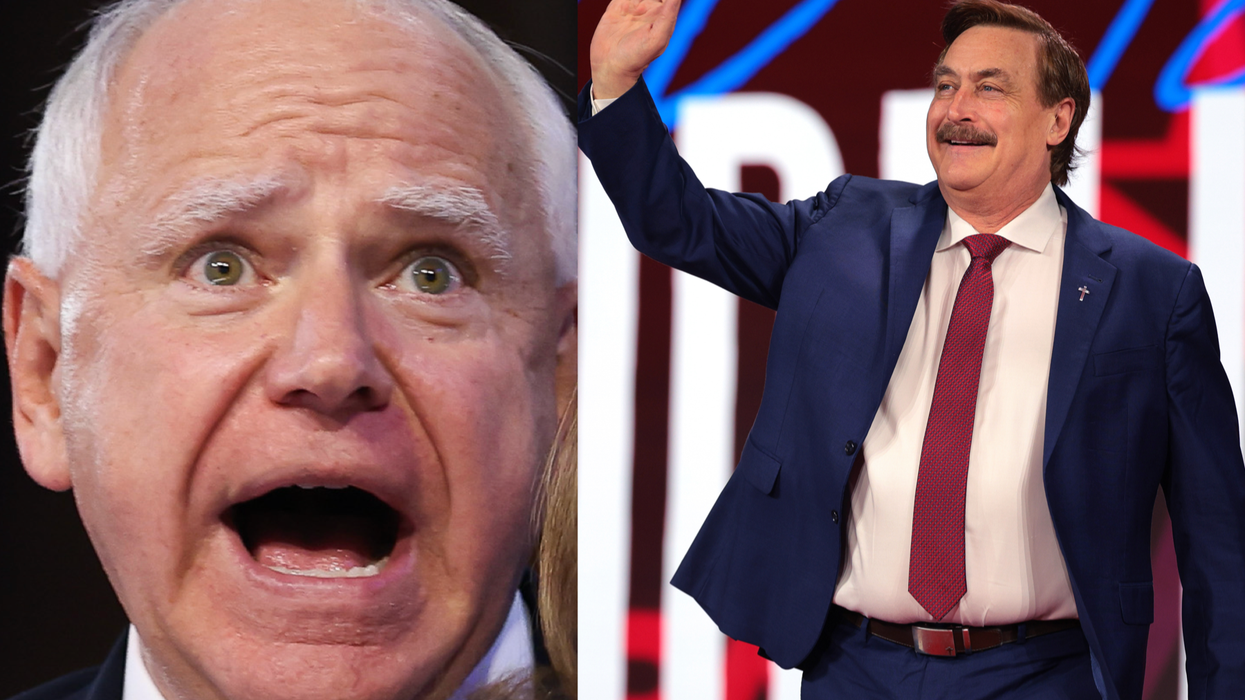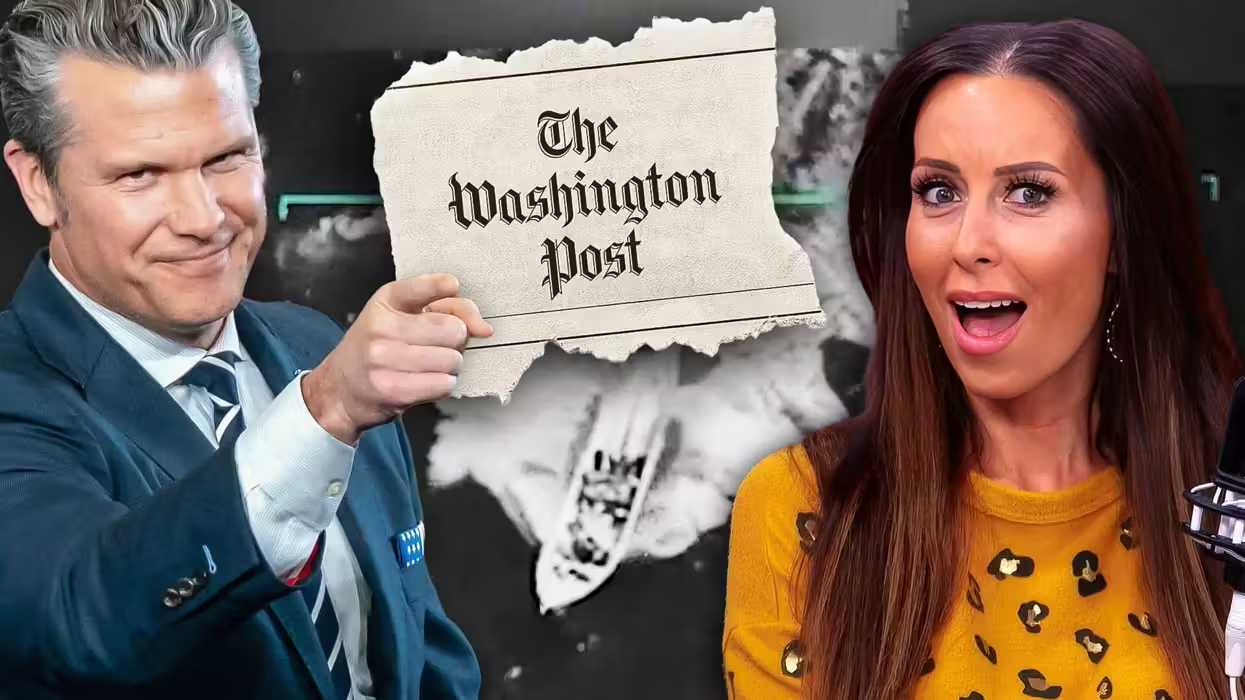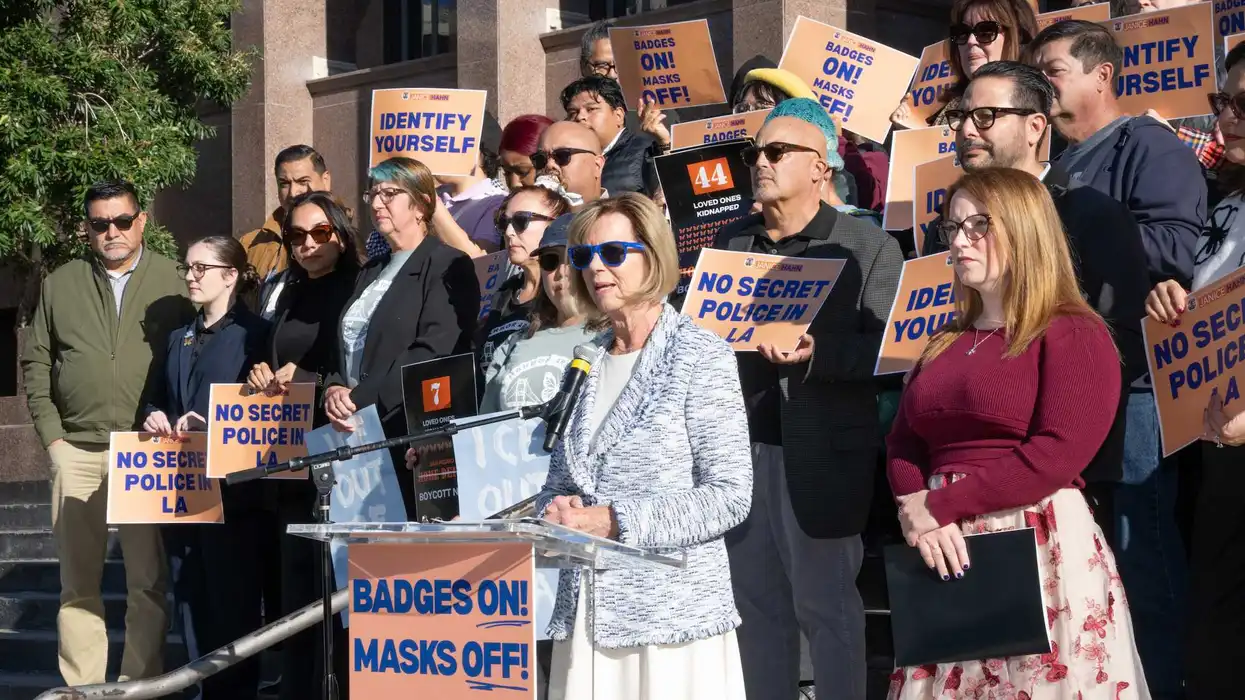
© 2025 Blaze Media LLC. All rights reserved.
"The SEC is stronger and our financial system is safer and better able to serve the American people ..."
 Elisse Walter (Photo: H. Darr Beiser, USA TODAY)
Elisse Walter (Photo: H. Darr Beiser, USA TODAY)
WASHINGTON (TheBlaze/AP) -- President Barack Obama has chosen Elisse Walter, one of five members of the Securities and Exchange Commission, to head the agency. Chairman Mary Schapiro will leave next month after a tumultuous tenure in which she headed the government's response to the financial crisis.
Walter will take over at a critical time for the SEC, which is finalizing new rules in response to the 2008 crisis. She can serve through 2013 without Senate approval because she's already been confirmed to the commission.
President Obama will need to nominate a permanent successor before Walter's term ends in December 2013. News reports have suggested that Mary John Miller, a top Treasury Department official, might be a potential candidate.
Walter, 62, a Democrat, was appointed to the SEC in 2008 by President George W. Bush. Earlier, she was a senior official at the Financial Industry Regulatory Authority (FINRA), the securities industry's self-policing organization. She served under Schapiro at FINRA, who led that group before becoming SEC chairman in January 2009.
"I'm confident that Elisse's years of experience will serve her well in her new position," the president said in a statement.
Walter is likely to follow the path Schapiro established at the SEC, experts suggested.
Schapiro took office after the Bernard Madoff Ponzi scheme and the financial crisis had eroded public and congressional confidence in the SEC. Since then, the agency has struggled with budgetary shortfalls.
Schapiro will leave the SEC on Dec. 14. She was appointed by Obama in the midst of the Great Recession. Schapiro, 57, is credited with helping reshape the SEC after it was accused of failing to detect reckless investments by many of Wall Street's largest financial institutions before the crisis. She is also responsible for bringing civil charges against the nation's largest banks.
In a statement Monday, President Obama said, "The SEC is stronger and our financial system is safer and better able to serve the American people - thanks in large part to Mary's hard work."
But critics argued that Schapiro failed to act aggressively to charge leading individuals at those banks who may have contributed to the crisis. Consumer advocates questioned Schapiro's appointment because she had led FINRA.
Under Schapiro, the SEC reached its largest settlement ever with a financial institution. Goldman Sachs & Co. agreed in July 2010 to pay $550 million to settle civil fraud charges that it misled investors about mortgage securities before the housing market collapsed in 2007. Similar settlements followed with Citigroup Inc., JPMorgan Chase & Co., and others.
 U.S. Securities and Exchange Commissioner Elisse B. Walter questions staff members during a public hearing at the SEC headquarters April 8, 2009 in Washington, DC. (Photo by Chip Somodevilla/Getty Images)
U.S. Securities and Exchange Commissioner Elisse B. Walter questions staff members during a public hearing at the SEC headquarters April 8, 2009 in Washington, DC. (Photo by Chip Somodevilla/Getty Images)
The Goldman case came to symbolize a lingering critique of Schapiro's tenure: No senior executives were singled out. The penalty amounted to roughly two weeks of earnings at Goldman. And Goldman was allowed to settle the charges without admitting or denying any wrongdoing, as were other large banks that faced similar charges.
Among the leading critics was U.S. District Judge Jed Rakoff, who questioned how the SEC could allow an institution to settle serious securities fraud without any admission or denial of guilt. Rakoff later threw out a $285 million deal with Citigroup because of that aspect of the deal.
Lawmakers and experts say Schapiro made the SEC more efficient, and they note that she fought for increased funding needed to enforce new rules enacted after the crisis. She often clashed with Republican lawmakers who had opposed the 2010 financial overhaul law and wanted to cut the SEC's budget.
Schapiro also faced criticism over a key decision she made in response to the Madoff scandal. Madoff had been arrested a month before Schapiro took over at the SEC in January 2009.
Schapiro allowed her general counsel at the time, David Becker, to help craft the SEC's policy for compensating victims. It was later discovered that Becker had inherited money his mother had made as a Madoff investor. Schapiro acknowledged in 2011 that she was wrong to have allowed Becker to play a key role in setting the policy.
 U.S. Securities and Exchange Commission Chairman Mary L. Schapiro (L) and Commissioner Elisse Walter talk after a public hearing at the SEC headquarters April 8, 2009 in Washington, DC. (Photo by Chip Somodevilla/Getty Images)
U.S. Securities and Exchange Commission Chairman Mary L. Schapiro (L) and Commissioner Elisse Walter talk after a public hearing at the SEC headquarters April 8, 2009 in Washington, DC. (Photo by Chip Somodevilla/Getty Images)
The SEC's inspector general concluded in a report that Becker participated "personally and substantially" in an issue in which he had had a financial interest. Some lawmakers complained that the affair further eroded the public's trust in the SEC.
Critics say the law went too far in removing SEC oversight, and might open the door to corporate scandals or to the sorts of deceptions that contributed to the financial crisis.
Follow Becket Adams (@BecketAdams) on Twitter
All photos courtesy Getty Images.
Want to leave a tip?
We answer to you. Help keep our content free of advertisers and big tech censorship by leaving a tip today.
Want to join the conversation?
Already a subscriber?
more stories
Sign up for the Blaze newsletter
By signing up, you agree to our Privacy Policy and Terms of Use, and agree to receive content that may sometimes include advertisements. You may opt out at any time.
Related Content
© 2025 Blaze Media LLC. All rights reserved.
Get the stories that matter most delivered directly to your inbox.
By signing up, you agree to our Privacy Policy and Terms of Use, and agree to receive content that may sometimes include advertisements. You may opt out at any time.






